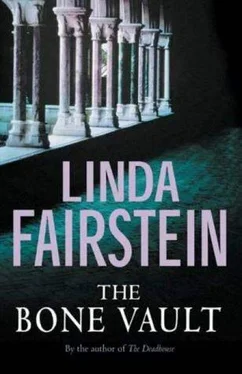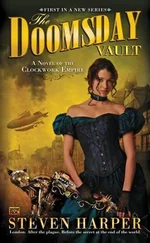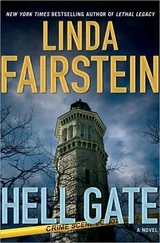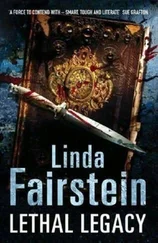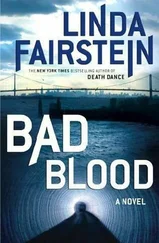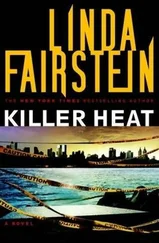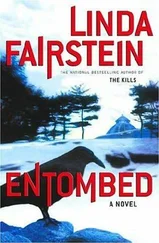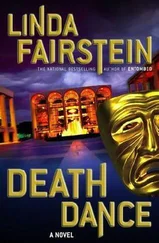Arent ignored Chapman and directed her ire toward me. “We’re going to go over your head on this one, Ms. Cooper. I’ll get an appointment with the district attorney.”
I walked across the hallway and unlocked my office as Mike followed me in. “I wish everybody would go over my head for a change. I might actually get some ordinary work done if I didn’t have to deal with every psycho who knocked on my door. I think there’s a support group for all the misfits in this country except cops and prosecutors. Let’s let Colin work on the videos in the conference room. Did you have a chance to look over Katrina’s file last night?”
Mike spread some of the papers from her personnel folder out across the top of my desk. “She didn’t punch a time clock, but a lot of these computer printouts reconstruct when she left the Cloisters to work at one of the other museums. It’s clear she spent a fair amount of time last fall going to both the Met and Natural History. She had passes that got her into each of them, and nothing to limit her access to any parts of the collection in both places.”
We spent the better part of the next hour trying to chart a time line of Katrina Grooten’s fall schedule. I told Mike about Jake’s message from the rich Mrs. Gerst, and we waited until after nine-thirty to call to set up a meeting with her. I couldn’t get past her social secretary, who invited us to come to Gerst’s Park Avenue pied-à-terre at the end of the afternoon, so we had no sense of whether the visit would be a complete waste of our time.
I was on the phone setting up the rest of the day and weekend with Sarah and Mike when Mickey Diamond came into the room, a rolled-up copy of the day’sPost under his arm.
“You got an answer for me?” I still wanted to know who had been the first leak on Katrina’s story.
“Good news or bad? What do you want first?”
“No bad. Not for another month or so.”
“You’d better look now. Otherwise you’ll just call and yell at me later.” He passed the newspaper across the desk and I unfolded it to see a half-page picture of Pierre Thibodaux. The photograph of his head was attached to the body of a Hollywood-style mummy, and in typical tabloid fashion, the headline read:TUT! TUT! MUSEUM BIGWIG DEPARTS UNDER WRAPS.
I skimmed the story, which linked his sudden separation from the institution to the discovery of the corpse in the coffin. “Very classy, Mickey. A lot of dignity over at your operation.”
“I didn’t write it, really. I would have made up a quote from you if I’d done the story myself.”
That was a technique that the dean of the crime reporters had perfected over the years, often enough so that even Battaglia knew I wasn’t breaking his rules to talk about my cases.
“What have you got for me if I tell you what I know about the leak?”
Mike was reading the Thibodaux story. “What has she got? For once will you just do the right thing and tell her what she wants to know? We promise to call you before we call Liz Smith the next time some rich and famous bastard confesses to killing his wife.”
“It’s nothing you don’t already know, Alex. Pat McKinney is just trying to make your life miserable.”
“Don’t tell me he’s found a new way to do it.”
“His friend, Ellen Gunsher?”
“Yeah. An expendable member of our brilliant legal staff.”
“Do you know who her mother is? Well, who her motherwas says it better.”
“No, should I?”
“Before your time. Her mother, Daniella, used to be a network commentator. Like Jake, only never quite as established. Career washed up ages ago. She did something unprofessional, like sob onair during some speech at a political convention. She’s supposed to be a bit unbalanced. Still works in production for a newsmagazine show. My source tells me the call about your case came in from Daniella Gunsher’s assistant. Like they were calling from the network to check on whether we had heard the same story before they went with it.”
“My apologies to Jake,” Mike said.
“If you ask me,” Mickey Diamond continued, turning to leave the room, “I’d be willing to bet Daniella doesn’t even rate an assistant at this point in her career. Your pal McKinney probably made the call himself, using Daniella Gunsher’s name to establish press bona fides, so the call would be noticed. That guy hates your guts, Alex.”
“Always a pleasure, Mickey.” His news confirmed my own beliefs, but made it impossible for me to report it to Battaglia. He didn’t want to hear any more of the grousing that had become commonplace between McKinney and me. I’d just have to put the information away for future use.
Mike packed up the Grooten file and we waited for Laura to Xerox a set for each of us before we drove uptown to keep our eleven o’clock appointment at Natural History.
I reminded Mike that we needed to stop at the East Side shop to try to identify who had purchased the sweater that was found on Katrina’s body. We got off the FDR Drive at Sixty-first Street and went north on Madison Avenue until I spotted the store marquee that matched the logo on the cashmere label. We parked and went inside.
Mike identified himself to the saleswoman, who was alone in the small store, using the quiet morning hour to refold and shelve her stock in neat columns. Like most everyone we encounter in the course of a murder case, she seemed to hope that the two of us were mistaken that any connection-no matter how casual-could be made between her life and our investigation into the death of someone else.
I showed her the Polaroid photograph of the sweater that Mike had taken at the morgue, and then a copy of the label that had been sewn into the collar. She studied the picture, bringing it up close to her nose to examine the stitching and inset design. There was a trace of an accent-Italian, I thought-when she looked up to speak to us. “But it’s not from this year, is it?”
“We’re not the fashion police, ma’am. It’s what the girl had on when she died. We don’t know when it was purchased, or by whom. That’s why we’re here.”
The earnest young woman picked up the slip of paper with the information about the label. “This manufacturer, we don’t carry his things anymore. Ah, perhaps if I check our computer, it will tell me something.”
It seemed to take forever as she sat at the monitor and entered the name and code numbers into her machine. Refusing to give in to the need for reading glasses, she leaned in close again and squinted at the display.
“Ah, yes. Two years ago, in the fall. We had a shipment of nine of these in a crewneck style, from the fabricator in Milano who handknits them.”
“Just nine?” Mike asked.
He seemed pleased, realizing that it was not like trying to track down some mass-produced piece of department-store clothing.
“One in each size-small, medium, and large. And three colors only. Lime, raspberry, peach.” She looked at Mike as though he must surely know the reason. “Our customers, sir, they don’t like to see themselves-how you say?-going and coming. This was a very expensive sweater.”
She paused. “And you are interested in which one? The medium size, in peach, am I right?” She pressedENTER, and an answer that seemed to please her popped onto the screen.
“Allora,”she said softly, in her native Italian. “Of course, I should have remembered. Her favorite color, and she was such a beautiful lady. I’ll write down the address we had for her, but I don’t think it will do you much good. She’s dead now, also. We sold this one to Penelope Thibodaux.”
“Not exactly a lucky charm, that pricey piece of goat hair. Both broads who wore it got more bang for the buck than they bargained for. Can we see him?”
Читать дальше
